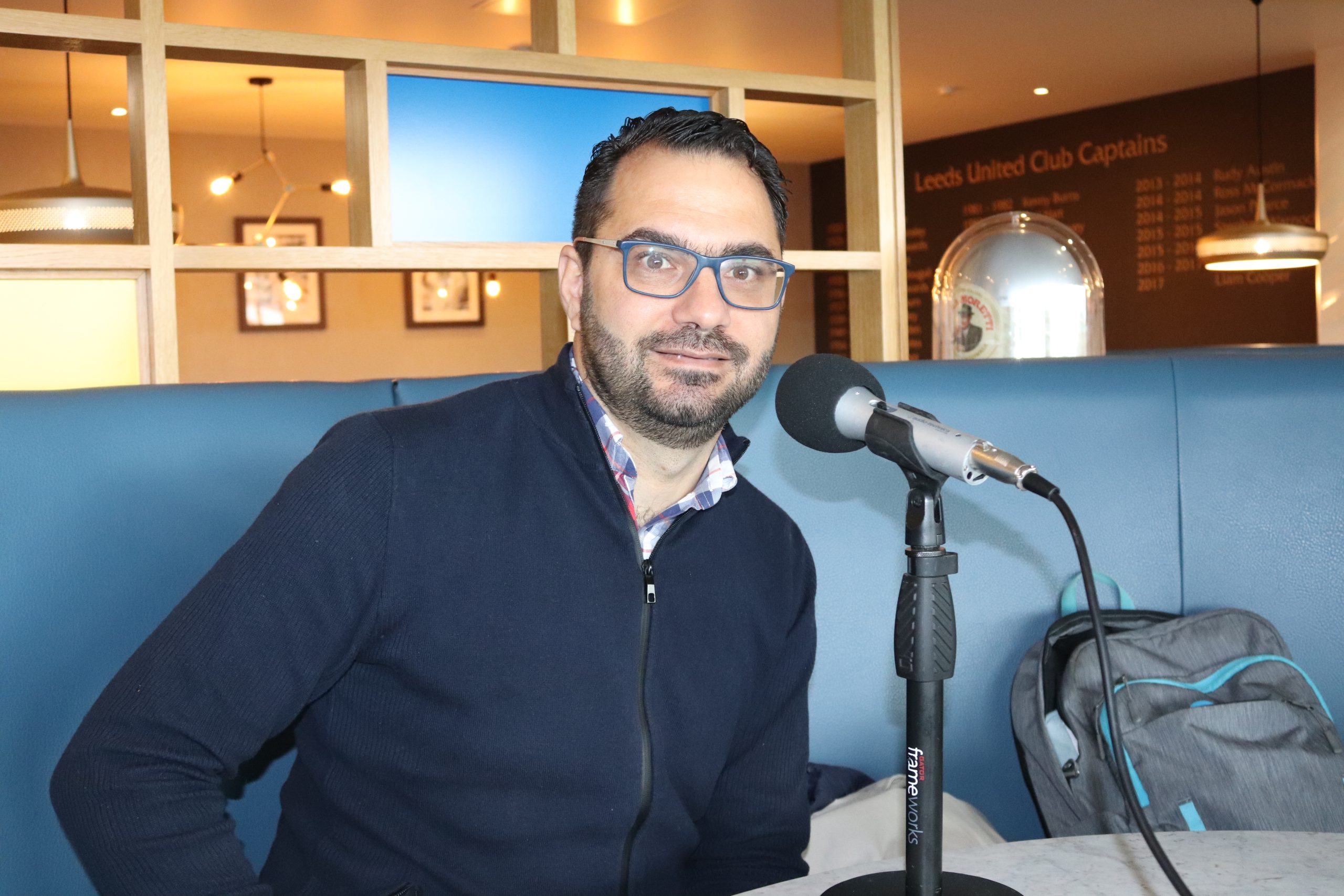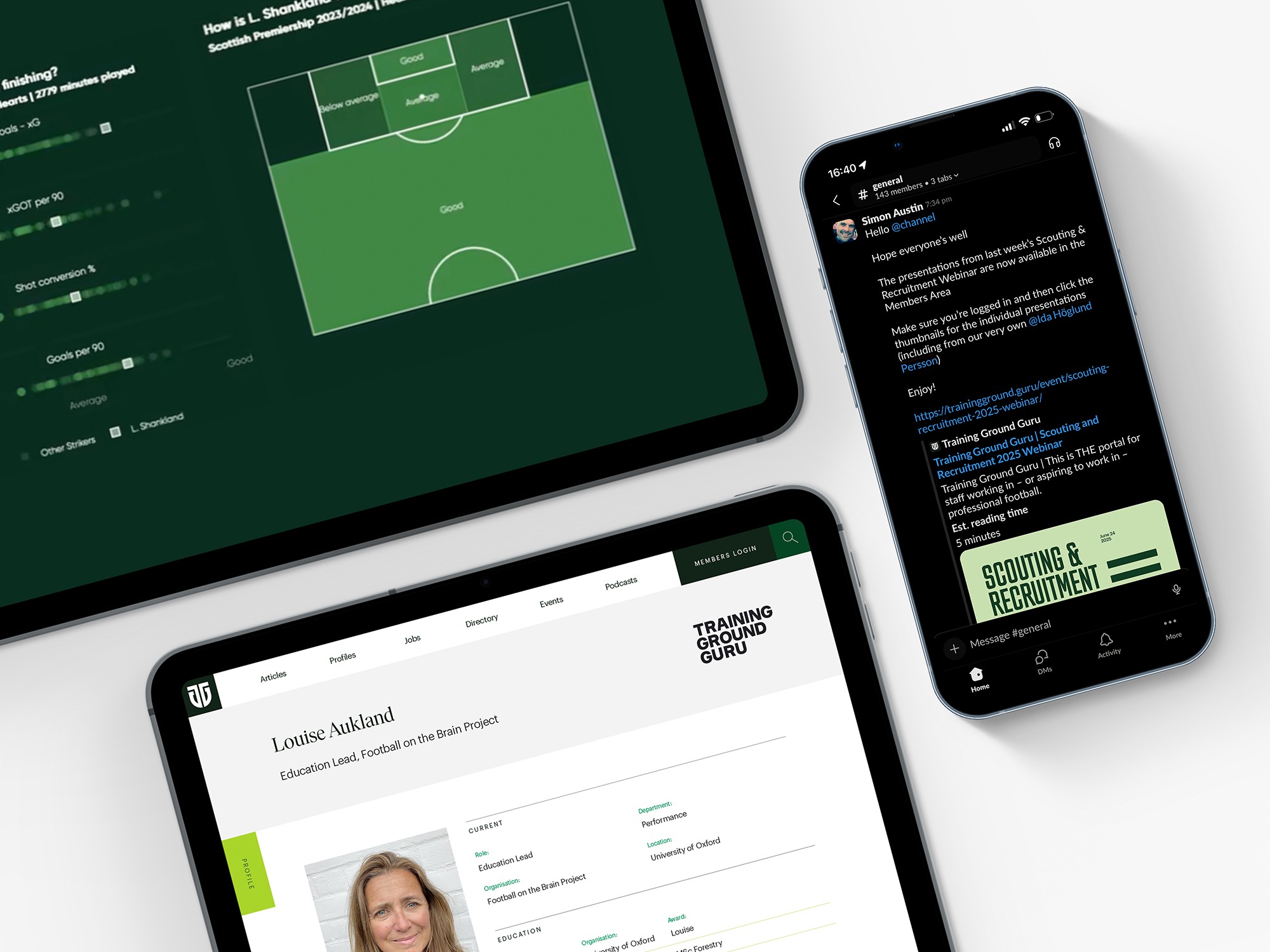
7
Victor Orta
Guiding the Leeds revolution
October 8, 2019
LEEDS UNITED Sporting Director Victor Orta says the club’s recruitment policy is 70% human judgement and 30% data.
Speaking exclusively to the Training Ground Guru Podcast, the Spaniard revealed that the club had developed two algorithms to help ensure that potential signings are able to fit in with manager Marcelo Bielsa’s style of play.
Orta said he speaks to Bielsa “daily; in summer, two or three times a day”, because “I need to know the requirements and elements the coach wants daily”.
After deciding which positions they need to recruit for, Orta and his scouting team compile a shortlist of potential signings, before running them through their data analysis. Finally, Bielsa gets a report on the shortlisted players.
“I am working with 70% human eyes and the other 30% with stats,” Orta told TGG. “I decide three or four names and then compare with qualitative analysis we can put in the report that we serve to Marcelo.
“I have two algorithms I am really happy with, because they are tailored for me, for Marcelo Bielsa’s style. (For the algorithm) we decide around 80 stats and decide the weight of each.
“Then we have all the stats and can determine what players can be really good for us.”
Orta insisted he would never sign a player without Bielsa’s approval – and has never done so at any of his previous clubs (Seville, Zenit St Petersburg, Elche and Middlesbrough) either.
“I never do this in my career, with Marcelo (Bielsa), Unai Emery, Marcelino, Aitor Karanka. I don’t know if you remember the quote of Rafa Benitez in the winter market in Valencia? (“I asked for a table and they brought me a lampshade.”)
“It cannot be a midfielder or number 10 when he wants a winger. After this, it is never successful if you bring a player without the ok of the manager and I never do that.”
Orta said Leeds needed to be “creative” in the transfer market because of financial fair play regulations.
In December 2014, under previous owner Massimo Cellino, the club was hit with a transfer embargo for breaching the regulations, which stipulate the operating losses that clubs are allowed to make.
“(For) teams like us, who are limited in terms of budget, the creativity is important in the transfers,” Orta explained. “The financial fair play situation, the change to the stricter rules, means that for teams without parachute payments it is difficult.”
A key part of this strategy is loans and the club appointed its first loans manager, Italian Simone Farina, in the summer. The former professional footballer, who was a whistleblower in the 2011 match-fixing scandal, had previously worked in international development for the club.
“We decided a good policy was loan players and I think we have improved the squad with loans, even with less investment because of the situation with financial fair play,” Orta explained.
“We start with the loan manager this year, Simone Farina – not in the level of the big clubs, but we are analysing, trying to improve our policy. It is really good to try and make successful the loan, not just sign a form and forget.”
As TGG reported in August, Orta had to make a presentation to an Arsenal ‘loans committee’ to secure the season-long signing of forward Eddie Nketiah in the summer. Leeds beat off competition from the other two shortlisted teams, Bristol City and Fortuna Dusseldorf, to land the teenager.
“There were a lot of teams that wanted Eddie,” Orta said. “I explained in front of the people why I am thinking that Eddie’s next step should be in Leeds United.
“It was a special situation but it was good, because it is really useful for all the people to understand not only with words but with videos what is happening and try to be sure they understand what we want and that it is the same as what they want.
“I have an amazing team behind me – Alex Davies, Andrea Iore and Craig Dean help me a lot with this kind of presentation. We put the ideas, the things we needed to explain down and also talked to Marcelo (Bielsa).”
Orta suggested there may not be major movement for the club in the January transfer window.
“January is not my favourite period, because of the availability of the players,” he said. “They could have a problem in terms of physical or contract. The market is really reduced. I don’t believe a lot in the winter market.”
CONVERTING DATA TO KNOWLEDGE
Orta is a long-time advocate of the use of data, analysis and technology in football, but says this needs to be converted into knowledge – especially when most clubs have access to video and data platforms like Wyscout.
“One situation in modern football is that all the information is there,” he said. “All the information is there, even cheap. I remember in the past, Amisco was really expensive. Even Seville could not pay for it.
“In the past, this was decisive. Now, all the tools are cheap, all the people have access to information. So you need to convert this information to knowledge: useful knowledge for you, with a really good filter.”
This is where the algorithms come in. Orta said they help him identify which players are a good fit for Leeds United, just as his mentor, the Sporting Director Monchi emphasised at Seville.
“Monchi would say, ‘Victor, he’s a really good player, but not for Seville,’” Orta said. “We are using this a lot in our scouting department now – ‘he is a really good player, but not for us.’
“This smell is special – it’s not in an algorithm or the stats.
“You can perform in a certain team, but what about a different team in a different country in a different league?”
There are now few undiscovered gems in football now because of the plethora of scouting data and videos, Orta said.
“We were going to watch a winger in Bodo Glimt, Hakon Evjen (who signed for AZ Alkmaar in September), and it was the third time he was in the line-up, at 16 years old.
“We watched and said, ‘Wow, he’s good.’ We travelled to watch his third start and all the scouts were there, from around the world. There were 15 scouts, all the big clubs. Then he is going to Holland.”
This content is for TGG Members
To view this full article (and all others) you need to be a TGG Member. Join up today and also get access to:
- Masterclasses & Online Conferences
- Full Academy Productivity Rankings & analysis
- Club Directory with 96 clubs & 1,000+ staff profiles
- Personal Profile Builder to showcase yourself
- TGG Live 2024 & 2025 presentations
